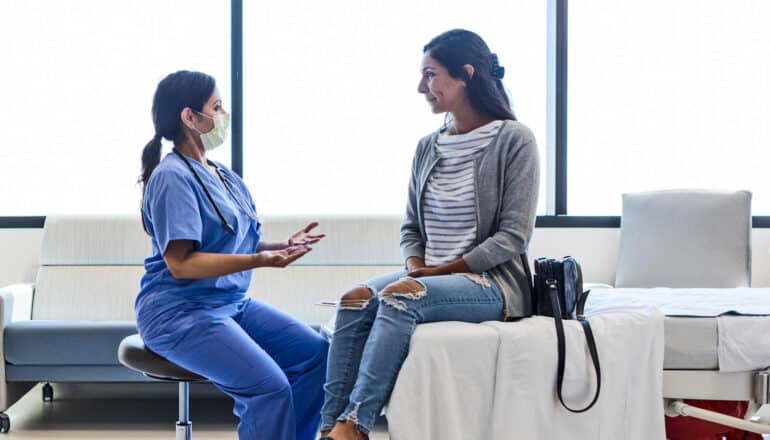
Advanced practical registered nurses would benefit from formalized and standardized education and about treating breast cancer survivors, a study finds.
By 2040, an estimated 26 million Americans will be living as survivors of cancer. While advances in technology and medical treatments have increased their survival rates, cancer survivors are still at a higher risk than the general population for both a return of their cancer or a new type of cancer forming. They are also at higher risk for developing cardiovascular issues and lymphedema, a chronic condition of swelling caused by disruptions to the body’s lymphatic system.
In a new study at the University of Missouri, researchers found that Advanced Practice Registered Nurses (APRNs) recognized the importance of breast cancer survivorship care and were willing to proactively plan the best next steps for their patients. Education on the topic would likely improve and streamline the health care provided by the APRNs, who are well-positioned to care for the growing population of cancer survivors.
According to Allison Anbari, an assistant professor in the University of Missouri’s Sinclair School of Nursing who led the study, by approaching cancer survivorship as a chronic condition, similar to hypertension or diabetes, researchers can equip clinicians with the information they need to in turn help better educate cancer survivors, thus improving their long-term health outcomes.
To better understand the experiences of APRNs caring for breast cancer survivors, Anbari interviewed APRNs about how they were helping plan care for their patients as well as potential areas for improvement.
“What we found is that while APRNs are doing a great job, they were often learning about breast cancer survivorship care on the job and used previous experiences of helping breast cancer survivors to inform current or future care plans for patients,” Anbari says. “If we start to think of cancer survivorship as a chronic condition, similar to hypertension, we can create a more formalized, standardized approach that provides clinicians with more systematic and streamlined trainings, resources, and education so that they can be even more successful going forward.”
The findings could lead to more formalized education, including lectures or webinars, specifically about cancer survivorship when they are in residency, in practicum, in clinical rotations, or as undergraduate students.
“Educating patients about symptom management, monitoring their body, continued surveillance screenings, echocardiograms, and clinical breast exams is crucial,” Anbari says. “Basic things like healthy diet and exercise can reduce the chances of cancer coming back or new cancers forming. Also, asking more holistic questions about stress, mental health, mammogram scheduling, and follow-up appointments with oncologists can be extremely helpful as well.”
As a two-time breast cancer survivor herself, Anbari received six chemotherapy agents, immunotherapy, two types of radiation, two surgeries, reconstruction, and physical therapies.
“Patients with diabetes get formally educated with programming and education about all kinds of things like foot health, skin health, and the glycemic index of foods, but the information for cancer survivors is currently not as formalized or standardized,” Anbari says. “If we can help streamline the process for clinicians to have the education and resources they need, the trickle-down effect of what the patients learn will ultimately improve their health outcomes.”
Anbari adds that emerging technologies, such as electronic health records and telehealth, can play a critical role in assisting APRNs and other non-oncology clinicians.
“As the number of cancer survivors continues to go up, this topic will only become more important going forward, and my goal is to help others who may not have had the same privileges or health care access that I had,” Anbari says. “APRNs are in a great position to help, as they have advanced training in health assessment and early illness detection, in pharmacology, and in diagnostics. As researchers, it is our job to support them, which ultimately helps their patients.”
The study appears in the Journal of the American Association of Nurse Practitioners.
Source: University of Missouri
The post How nurse education could benefit breast cancer survivors appeared first on Futurity.